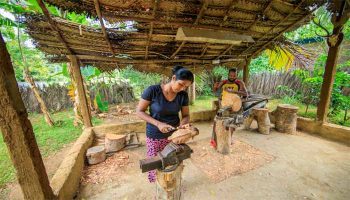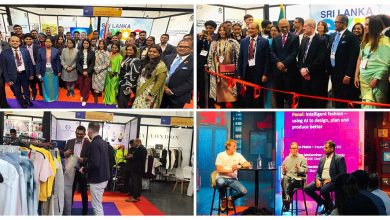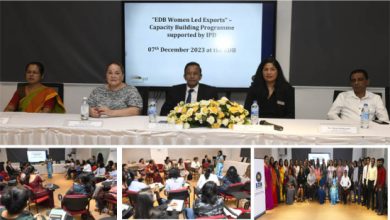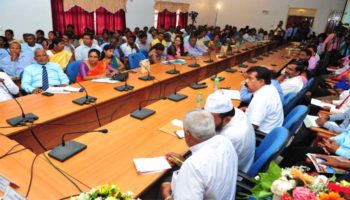“Women in Leadership: Achieving an equal future in a COVID-19 World”.

Being a great leader is not about being a man or a woman. Gender does not decide whether someone possess strong leadership skills and qualities. And yet for too long the perception has remained that men are better leaders than women and leadership roles have been dominated by men.
However, in today’s world, research shows that organizations that are led by inclusive leadership teams make decisions that deliver better end results In the twenty-first century, some of the recognized qualities required to lead include the ability to collaborate, connect, understand, and communicate. All qualities which women can and do possess.
Female leadership has been found to be good for financial health of an organization. For example, organizations which had female board members showed significantly better financial performance than those having low female representation. Better financial health of the organization leads to better job opportunities, higher productivity and more growth and development.
Women’s leadership is essential to increase the pace of social transformation both at home and in the workplace. Women leaders are more likely to provide an integrated view of work and family, resulting in an engaged and talented personal and professional future. Various studies have found that women are equipped with better relationship building skills. They were also found to be good at inspiring and encouraging others.
The benefits of female leadership in different sectors are as diverse and significant as those from male leadership. Progress cannot happen without gender parity in leadership and a diversity of perceptions of leadership roles.
In 2019 females accounted for 52.01% of the total population of Sri Lanka, however according to the World Bank development indicators only 34.3% of the female labor force contributed to the country’s economic development. Now is the time to promote women’s labor force participation by handing leadership to women.
Skills for Inclusive Growth (S4IG) is an initiative of the Australian Government in partnership with the program supports skills training, job creation and business growth across. This is a skills program that uses the tourism sector to explore and demonstrate successful models of change within skills providers and formal and informal tourism enterprises through showcasing coordinated, demand-driven, flexible, and inclusive skills development.
As a program that works in gender equality, disability and social inclusion, Skills for Inclusive Growth supports and prioritises women’s empowerment in all the work that we do. We believe that now is more important than ever to ensure women’s leadership and empowerment.
Throughout 2020 women have stood at the front line of the COVID-19 crisis, as health care workers, caregivers, innovators, community organizers and as some of the most exemplary and effective national leaders in combating the pandemic. The crisis has highlighted both the centrality of women’s contributions, and also the disproportionate burdens that they carry.
To sustain women’s rights and fully control the potential of women’s leadership in pandemic preparedness and response, the diverse perspectives of women and girls must be integrated into the design and execution of policies and programs in all spheres and at all stages of pandemic response and recovery.
Achievements of Phase I
GENDER INCLUSION
Guided by the Gender Equality Strategy (2017-2020), the S4IG Program has focused on providing skills and knowledge training to women in areas of labor market demand, in particular those usually occupied predominantly by men. This approach aims to reduce their vulnerability to labor market shocks and to improve access to formal employment in non-seasonal and male-dominated occupations.
One transformative change from S4IG activities was increasing women’s representation, with 55% of the enterprises that created additional employment being female owned. This meant that control of decision making was in the hands of women and those businesses also generated income for the women they employed. In addition, over the duration of the program, of the 590 participants across the four districts that gained employment, 37% were women. There is also evidence that women who were trained by the program increased their income by AUD 39,000 (Rs4,767,944). While the increase is still slightly less than their male counterparts, this is a positive outcome as the increases were due to either gaining full time permanent employment or self-employment. Recognizing that language can be a barrier, S4IG has also targeted women and new entrants to the labor market for English language training. Overall, 218 women have received training in English, while 8 women working in surf tourism were provided training in German and Russian language training.
A JOURNEY TOWARDS A TRANSFORMATIONAL CHANGE
Krithika Thushyantha was frustrated by the lack of excitement, innovation and enjoyment offered by traditional employment opportunities available to women. So, she decided to step outside the box and create her own opportunity by founding Techno Brain, an IT company in Batticaloa district. “My parents gave me the freedom to do whatever I wanted, that’s what made me to break the boundaries and become a Managing Director of an IT Company in my hometown, with my husband’s support and guidance.”
Working as a service provider through the S4IG Program was a completely new experience for Krithika and her company. At first, Krithika was skeptical about running a project entirely with female participants. As a woman and Managing Director of an IT company she was concerned about putting her growing company at risk. However, she persuaded herself to take the risk and deliver the training program for a target group of women. During the start-up of the project, Krithika faced some difficulties with screening potential participants but as she persisted and through the experience gained a new perspective:
“Today as a woman I believe that I have gained vast knowledge about the problems faced by women and the solutions by creating platforms women to women.”
Reflecting on how the Program supported that journey she added, “[A]s an institution, the systems which have been developed after the collaboration with S4IG contributed to my company’s improved performance and our professionalism. My company has adopted the systems we developed during the training, and we have since developed manuals which are fundamental to good training and replicating the program. We did not have these strategies and practices before we worked together with S4IG.”
The technical skills gained through training added value to advancing the careers of the women who took part in the training program: “I remember one of the participant’s mothers shared with me that her daughter is always now busy writing in her blog, she has increased confidence and knowledge and is sharing and explaining to others what she is doing right now. She is totally a different person compared to the past. The technical skills taught gave her the courage and confidence to move forward. The mother is now happy to see her daughter engaging in online marketing,” reported Krithika.
With 25 participants starting the course and 17 completing it, the changes have been transformational at an individual and institutional level. Before engaging with S4IG, Technobrain has been doing various small projects such as web development, GIS surveys and a Makerspace for kids. “After engaging with S4IG as a Managing Director I learned how to think about business model while contributing to the community development. Earlier our team was using 360-degree cameras just for entertainment, to upload pictures of places that seem interesting into social media and various other open platforms. Now we are using the same skill in a profitable way, which is something new for me and my company. The opportunities gave me space to think about everything in a business perspective and this will be my company’s future as well,” Krithika said.
Beyond the benefits to Krithika, her company and the training participants, in addition two of Krithika’s female employees are also now engaged in online activities. One is uploading her handicraft and knitting videos via her own blog, while the other is waiting for her university entrance to complete an online qualification in IT.
“S4IG’s engagement and changes have not only provided opportunities to individual participants in the training but opened up opportunities and pathways to everyone involved in the process including my company” said Krithika.







